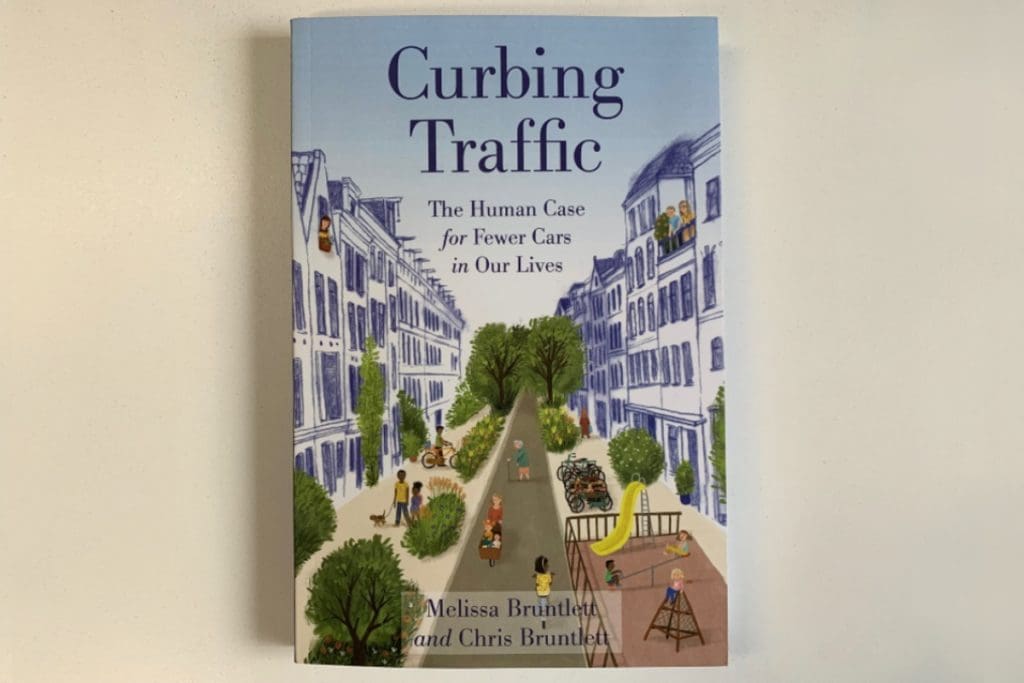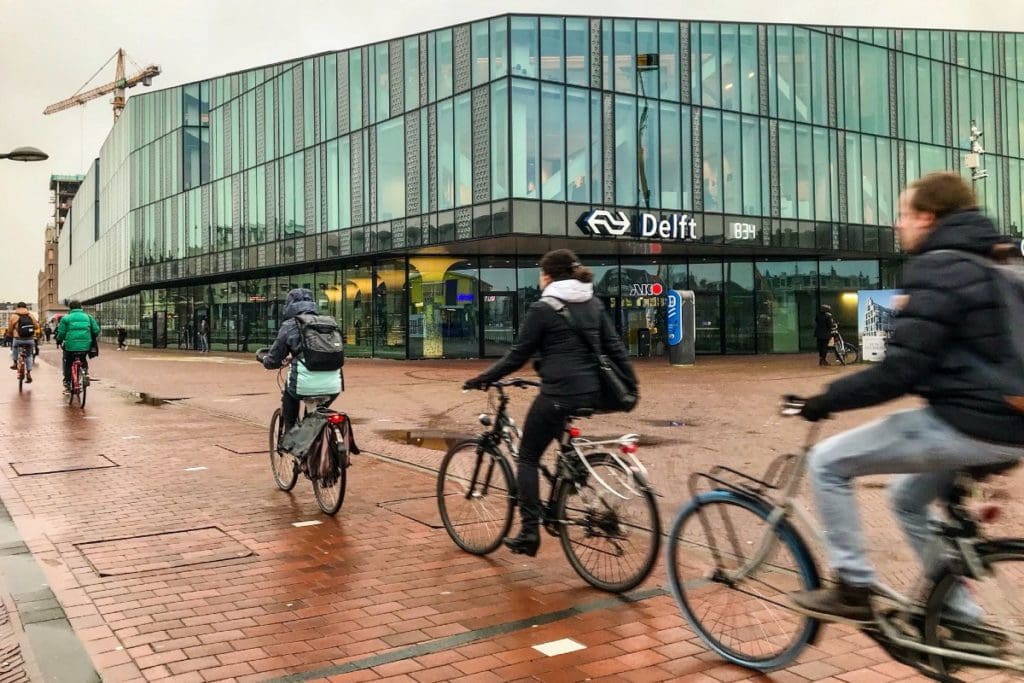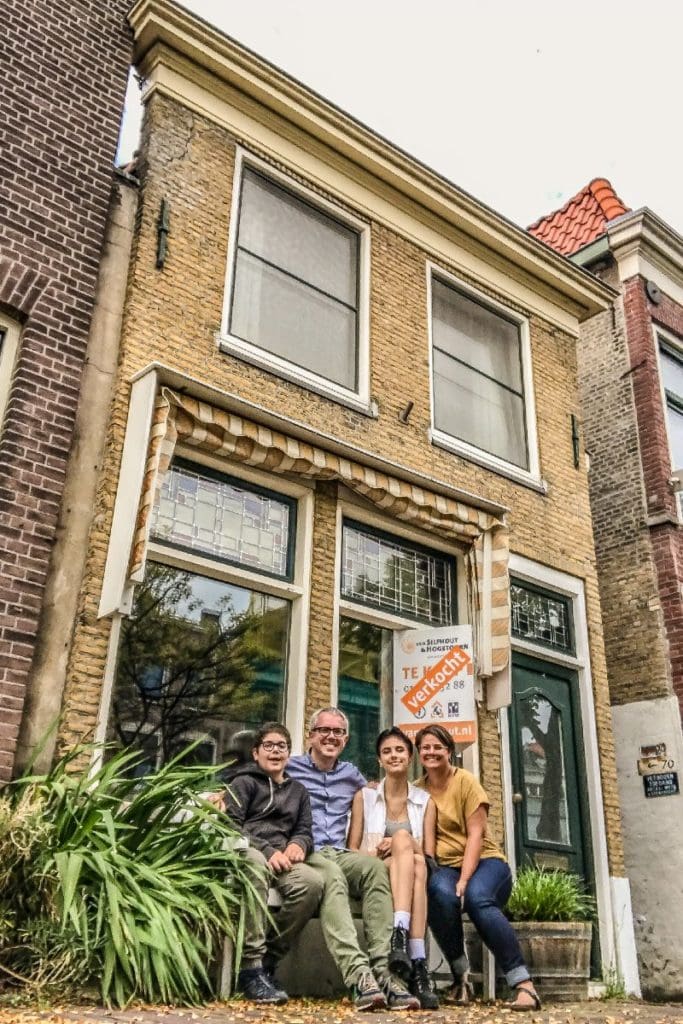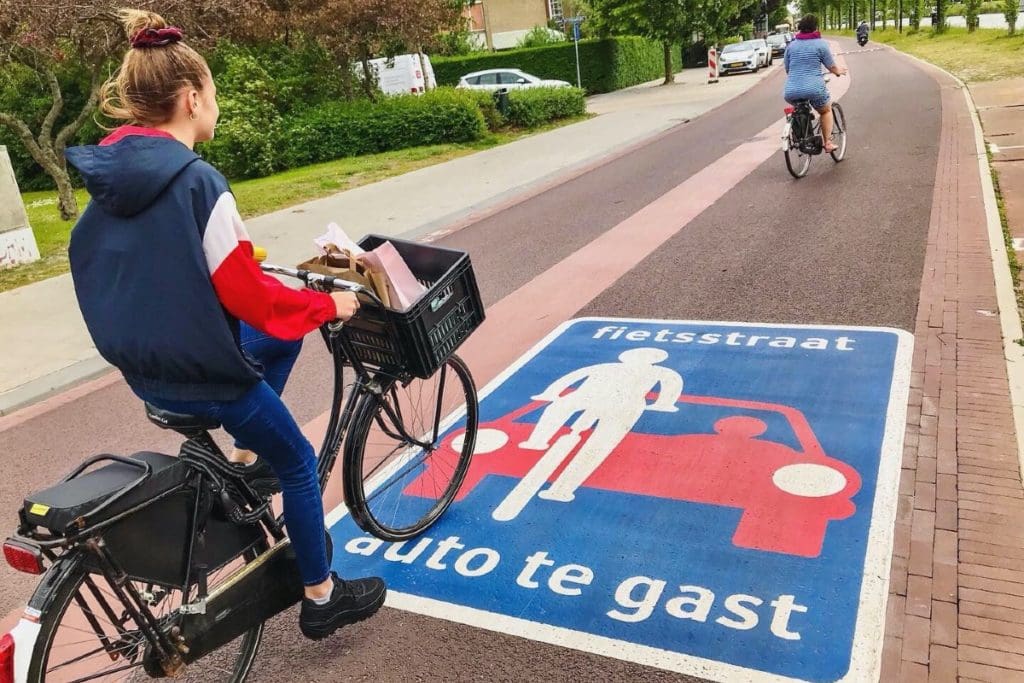Book Review: Curbing Traffic

Delft, Netherlands
Curbing Traffic Gives Unique Insights
Curbing Traffic is the second book by well-known cycling advocates Chris and Melissa Bruntlett.
In large part it’s autobiographical, telling their unique personal story. After living in ‘small town’ Canada but becoming gradually more concerned about the need for liveable cities, the Bruntletts moved to the Grandview-Woodland precinct of Vancouver, Canada – one of the more progressive areas in what is one of the most progressive larger cities in North America.
But even there, they found that their lives, and the safety of their two children, were dominated by huge volumes of motor vehicle traffic, traveling at high speeds along roads designed for ‘traffic sewer’ priority over all others.
In particular, as a mother, Melissa grew tired of feeling the need to justify and defend herself every time she ventured out on her bicycle with her young children on board.

After visiting the Netherlands, they decided to take the plunge, sell up and migrate to the city of Delft, a compact city of about 100,000 residents, located in the most densely populated region of the Netherlands, halfway between The Hague and Rotterdam.
In Curbing Traffic, Chris and Melissa describe with unvarnished frankness their first-hand experiences, trepidations, and revelations as they adjust to new jobs, a new culture, new schools for their children, and learning a new language.
Spoiler alert! How does this cross-Atlantic experiment end? The final photo in Curbing Traffic shows the family, now approaching the end of their second year of living in Delft, sitting outside their ‘new’ 130-year-old canal frontage home that they’d just bought, after renting until that point.
If you’ve read a lot of active travel/cycling advocacy genre books, then you may be relieved to learn that Curbing Traffic is distinctly more human and less technical in its content than most.

It focuses on the benefits of low car living, not ignoring specific strategies to achieve this goal, but not delving too far into the technicalities.
Each of its 10 core chapters focuses on a different benefit of low car cities, with headings including the words ‘Child-Friendly’, ‘Connected’, ‘Trusting’, ‘Hearing’, ‘Accessible’, ‘Prosperous’ and ‘Resilient’.
Overall, Curbing Traffic has an optimistic tone, but even if you’re an experienced advocate, you might be surprised how many benefits of low car cities this book outlines that you haven’t fully considered. It also, without needing to say so directly, underlines just how far we have to go, particularly in car-centric nations such as Australia and New Zealand (which are referred to several times in the book.)
All books have room for improvement. It would have been nice, especially for the first edition, if the publishers could have stretched their budget to include full-colour photos and perhaps a slightly larger format to give the images more space. Because the photos themselves are well above average for books of this nature, but relatively small black and white photos on uncoated paper stock will always struggle to ‘pop’.

Curbing Traffic is published by Island Press, a not-for-profit publisher of books about environmental causes. It’s certainly encouraging that such publishers exist to help share such important messages.
If you buy directly through Island Press and use the promo code that appears on the Bruntlett’s website, www.modacitylife.com then you can get 20% off the cover price.

“Car as guest.” A statement and philosophy that if adopted by local governments at least for high value bike/ped locations, could lead to a profound shift in perceptions and understanding of how to management people movement in our urban (and even regional town) environments.
Thanks for your comment Michael. I agree. And beyond a statement and philosophy there are so many design treatments such as changing surface colours and textures, vehicle crossings at intersections being raised to footpath level and so on, that effectively convey this to vehicle drivers, even if they’ve never heard of the concept.